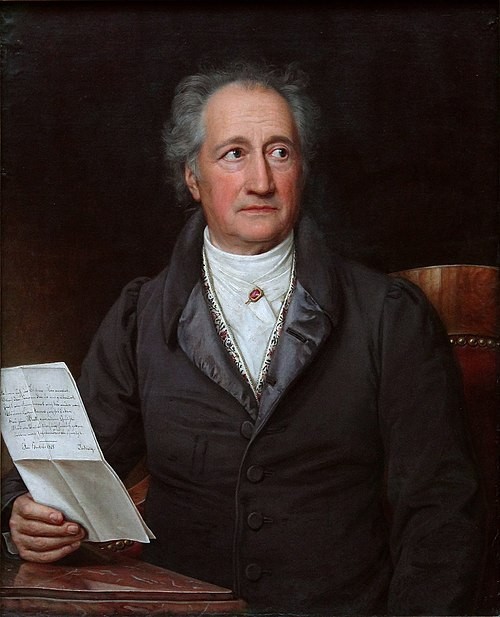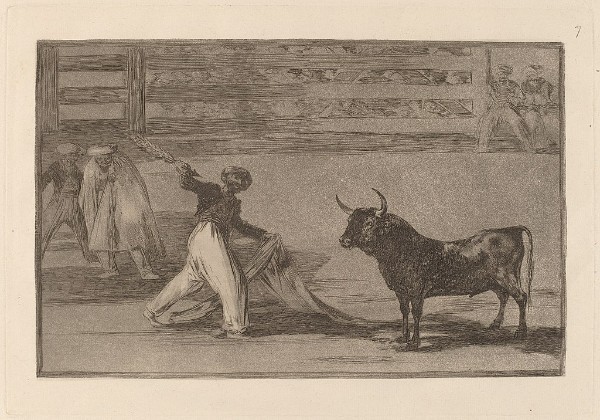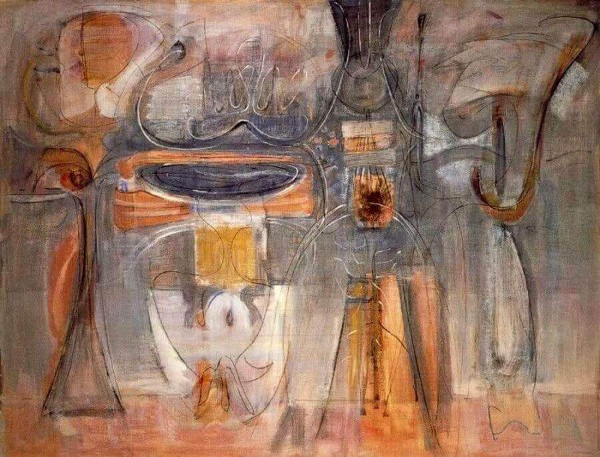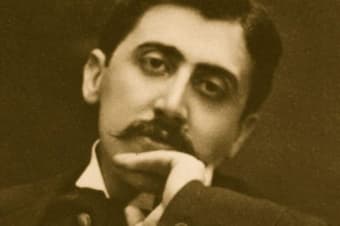
Marcel Proust
We think of Marcel Proust (1871-1922) mainly as the novelist, author of À la recherche du temps perdu (In Search of Lost Time / Remembrance of Things Past) but in his youth, he was a poet as well. In his first publication in 1896, Les Plaisirs et les Jours, a collection of his early poems and novellas, he included 4 poems on paintings he’d seen at the Louvre while a student at the Lycée Condorcet.
The four poems were on the Dutch painters Aelbert Cuyp (1620-1691) and Paulus Potter (1625-1654), the Flemish painter Anthony van Dyck (1599-1641), and Jean-Antoine Watteau (1684-1721). These painters of distinctly different styles and themes, Cuyp with his paintings of the Dutch countryside, Potter and his animal paintings, the court paintings of van Dyck, and the colour-soaked paintings of Watteau spurred the young Proust to capture in words the images he loved.
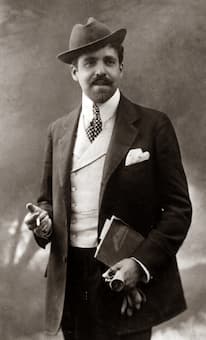
Manuel Cohen: Reynaldo Hahn (1906)
In 19th century France, the artists hung out together and so we have writer and artist friendships such as Baudelaire and Delacroix, Zola and Manet, and Mallarmé and Whistler. Proust met the Venezuelan-born composer Reynaldo Hahn in 1894 when Hahn was still 19. Yet, even at that young age, Hahn was already known as a composer. A song he’d written at age 16, “Si mes vers avaient des ailes,’ on a Victor Hugo text, was popular in performance (as it still is today).
Reynaldo Hahn (1874-1947) was born in Caracas, Venezuela, and the family moved to Paris when he was 3; it became his home for life. He entered the preparatory classes for the Paris Conservatoire in 1885, when he was 11, and was in the same piano class as Maurice Ravel and Alfred Cortot. He studied composition with Charles Gounod and Jules Massenet.
He met Marcel Proust at Madeleine Lemaire’s salon on 22 May 1894 and their meeting prompted first a 2-year love affair between the two men which evolved into a life-long friendship. The publication of the four poems on painters prompted Hahn to write accompanying music. He wasn’t setting the music but writing music to accompany the reading of the poetry. Or, the music could be played after a recitation of the poem, as musical interpretation of the moods and images of the poems.
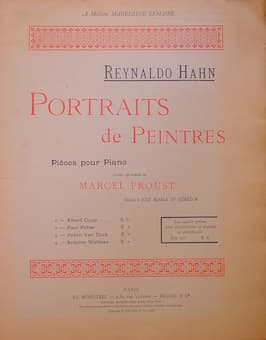
Hahn: Portraits de Peintres (1896) cover
The poems were published in Les Gallois on 21 June and were recited a week later at a soirée held by Madeleine Lemaire. The music and the poetry were published in 1896 and dedicated to Madeleine Lemaire, with the poetry bearing a separate dedication to the poet José-Maria de Heredia.
These musical portraits based on literary portraits of a painter’s work and style are unique. They’re almost like incidental music but for both a text and an image. Since Proust does mention specifics of some of the paintings we can match them up with representative works for each subject.
We open with a work by Aelbert Cuyp, known for his landscapes. In his poem, Proust specifically calls out the sinking sun in the background, the flight of pigeons, and a rider with a pink feather in his cap.
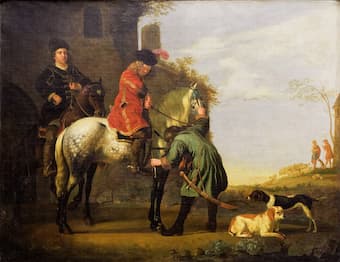
Cuyp: Le départ pour la promenade à cheval (ca. 1660-1670) (Paris: Musée du Louvre)
Aelbert Cuyp
Cuyp, soleil déclinant dissous, dans l’air limpide | Cuyp, sunset dissolves in the limpid air, |
Qu’un vol de ramiers gris trouble comme de l’eau, | Ruffled as water by a flight of grey wood pigeons, |
Moiteur d’or, nimbe au front d’un boeuf ou d’un bouleau, | A gold dampness haloes the forehead of a cow or a birch, |
Encens bleu des beaux jours fumant sur le coteau, | Blue incense fogs the beautiful days on the hillside, |
Ou marais de clarté stagnant dans le ciel vide. | Or the sky empties light into the stagnant marsh. |
Des cavaliers sont prêts, plume rose au chapeau, | Horsemen await, pink feather to the hat, |
Paume au côté ; l’air vif qui fait rose leur peau, | Palm to the side, their skin pinkened by the brisk air, |
Enfle légèrement leurs fines boucles blondes, | That lightly puffs up their fine blonde mouths, |
Et, tentés par les champs ardents, les fraîches ondes, | And, tented by the awesome fields, the fresh waves, |
Sans troubler par leur trot les boeufs dont le troupeau | Whose herd of cattle amble undisturbed, |
Rêve dans un brouillard d’or pâle et de repos, | Dream of pale gold fog and of rest, |
Ils partent respirer ces minutes profondes. | They go off to breathe these deep minutes. |
And we can find all these elements in Cuyp’s Le départ pour la promenade à cheval, particularly the pink feather.
Reynaldo Hahn: Portraits de Peintres for Piano – I. Albert Cuyp (Ronald Brautigam, piano)
Proust turns his attention to Cuyp’s compatriot, Paulus Potter. Known for his animal paintings, Potter places people in the backgrounds, if they appear at all. Proust calls out the lack of colour, the bare ground, a plowman with a bucket, and the resigned mare who stands and waits, dreaming.
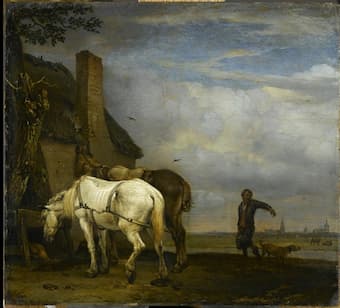
Paulus Potter: Deux Chevaux près d’une auge devant une chaumière (1649)
(Paris: Musée du Louvre)
Paulus Potter
Sombre chagrin des ciels uniformément gris, | Dark sorrow of the skies, uniform grey, |
Plus tristes d’être bleus aux rares éclaircies, | The rare bright spots, sadder to be blue, |
Et qui laissent alors sur les plaines transies | And who leave the frozen plains |
Filtrer les tièdes pleurs d’un soleil incompris ; | Filtering the lukewarm tears of a misunderstood sun; |
Potter, mélancolique humeur des plaines sombres | Potter, melancholy mood of the dark plains |
Qui s’étendent sans fin, sans joie et sans couleur, | That spread endlessly, without joy and without colour, |
Les arbres, le hameau ne répandent pas d’ombres, | The trees, the hamlet, do not shed any shadows, |
Les maigres jardinets ne portent pas de fleur. | The little gardens carry no flower. |
Un laboureur tirant des seaux rentre, et, chétive, | A labourer returns pulling buckets, and, puny, |
Sa jument résignée, inquiète et rêvant, | His mare resigned, worried and dreaming, |
Anxieuse, dressant sa cervelle pensive, | Trained and anxious, his pensive brain, |
Homme d’un souffle court le souffle fort du vent. | Short breath of a man, the long breath of wind. |
In his quiet setting, Hahn summons up the cold, grey day.
Reynaldo Hahn: Portraits de Peintres – II. Paulus Potter (Ronald Brautigam, piano)
Anthony van Dyck was the fashionable court painter for the Netherlands and Italy before going to England at the request of Charles I to be the main court painter. The relaxed elegance of his works is reflected in Proust’s poem, which describes his beautiful language of posture and poses. Proust mentions the Duke of Richmond by name. Van Dyck painted James Stuart (1612-1655) holding the Apple of Discord (from The Judgement of Paris). Proust refers to van Dyck as the ‘prince of calm gestures,’ and, above all, the Duke’s quiet gaze, reflecting the sapphire at his neck.
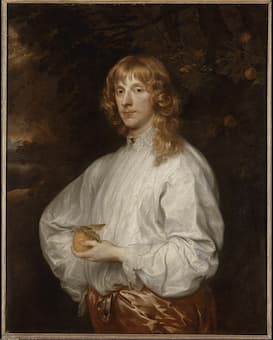
van Dyck: Portrait de James Stuart, duc de Lennox (1612-1655) et premier duc de Richmond (à partir de 1641), avec les attributs de Pâris (ca 1633-1634) (Paris: Musée du Louvre)
Antony Van Dyck
Douce fierté des cœurs, grâce noble des choses | Bittersweet, the heart’s pride, noble grace of things |
Qui brillent dans les yeux, les velours et les bois, | That shine in the eyes, the velvets and the woods, |
Beau langage élevé du maintien et des poses | Beautiful high language, holding up between poses |
– Héréditaire orgueil des femmes et des rois ! | – Hereditary conceit of women and kings! |
– Tu triomphes, Van Dyck, prince des gestes calmes, | – You triumph, Van Dyck, prince of calm gestures, |
Dans tous les êtres beaux qui vont bientôt mourir, | In all the beautiful ones who are soon to die |
Dans toute belle main qui sait encore s’ouvrir ; | In every beautiful hand that remembers how to open |
Sans s’en douter, – qu’importe ? – elle te tend les palmes ! | Without doubting itself, – what matters? – The palms stretch out! |
Halte de cavaliers, sous les pins, près des flots | Riders halt, under the pines, near the streams, |
Calmes comme eux – comme eux bien proches des sanglots | They are quiet – as they are very close to tears |
– Enfants royaux déjà magnifiques et graves, | – Royal children already splendid and grave, |
Vêtements résignés, chapeaux à plumes braves, | Resigned to raiment, hats with feathers brave, |
Et bijoux en qui pleure – onde à travers les flammes | And jewels in which tears, waves through flames |
L’amertume des pleurs dont sont pleines les âmes | Tears of bitterness which are full of the soul |
Trop hautaines pour les laisser monter aux yeux ; | Too lofty to approach leave from their eyes; |
Et toi par-dessus tous, promeneur précieux, | And you, over all, precious walker, |
En chemise bleu pâle, une main à la hanche, | In your pale blue shirt, one hand at the hip, |
Dans l’autre un fruit feuillu détaché de la branche, | In the other a leafy fruit picked off the branch, |
Je rêve sans comprendre à ton geste et tes yeux ; | I dream without understanding your gesture and your eyes, |
Debout, mais reposé, dans cet obscur asile, | Standing, but rested, in this obscure refuge, |
Duc de Richmond, à jeune sage ! – ou charmant fou ? | Duke of Richmond, a young sage! – Or charming fool? |
Je te reviens toujours : Un saphir, à ton cou, | I return to you always: A sapphire, at your neck, |
À des feux aussi doux que ton regard tranquille. | Has fires as soft as your quiet look. |
Reynaldo Hahn: Portraits de Peintres for Piano – III. Anton van Dyck (Ronald Brautigam, piano)
The last poem is about the French painter Jean-Antoine Watteau, who also inspired Debussy and Fauré. It’s a scene from the ending of the day, twilight approaches and the weary people make their way to a boat. Love is in the air, but so is melancholy.
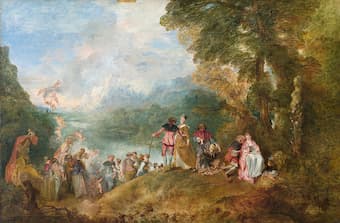
Watteau: Pèlerinage à l’île de Cythère (1717) (Paris: Musée du Louvre)
Jean-Antoine Watteau
Crépuscule grimant les arbres et les faces, | Twilight makes up the trees and the faces, |
Avec son manteau bleu, sous son masque incertain; | With his blue cloak, under his uncertain mask; |
Poussière de baisers autour des bouches lasses… | Kiss of dust around the tired mouths… |
Le vague devient tendre, et le tout près, lointain. | Far becomes close, and the very near, distant. |
La mascarade, autre lointain mélancolique, | The masquerade, other melancholic distance, |
Fait le geste d’aimer plus faux, triste et charmant. | Was love’s false gesture, sadder and charming. |
Caprice de poète – ou prudence d’amant, | Whim poet – or prudent lover, |
L’amour ayant besoin d’être orné savamment – | The lover needing to be knowingly adorned |
Voici barques, goûters, silences et musique. | Here, boat, smells, silences and music. |
One of Watteau’s fête galante paintings, Pèlerinage à l’île de Cythère from 1717, shows couples departing from the isle of Kythera, home to a temple dedicated to Aphrodite, goddess of love. Lovers look back in regret and the day’s ending is an end to the pleasure.
Hahn summons up the sea in his opening and its restless sound could also be that of longing for which is now finished.
Reynaldo Hahn: Portraits de Peintres for Piano – IV. Antoine Watteau (Ronald Brautigam, piano)
These highly unusual piano works are a little insubstantial on their own, without hearing them and understanding that this is really a background to another work. It’s not incidental music, such as for a play, but it’s audible images, it’s the sound of poetry made into the sound of music.
For more of the best in classical music, sign up to our E-Newsletter

